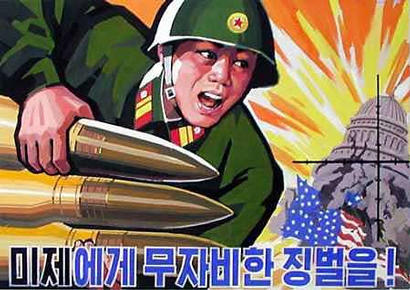
From Jack Kim and Louis Charbonneau, Reuters: North Korea threatened the United States on Thursday with a preemptive nuclear strike, raising the level of rhetoric just before the U.N. Security Council approved new sanctions against the reclusive country.
U.S. Ambassador to the United Nations Susan Rice said North Korea’s threats would achieve nothing and would only further isolate the country.
China’s U.N. Ambassador Li Baodong said Beijing wanted to see "full implementation" of the new U.N. Security Council resolution that tightens financial restrictions on Pyongyang and cracks down on its attempts to ship and receive banned cargo.
North Korea has accused the United States of using military drills in South Korea as a launch pad for a nuclear war and has scrapped the armistice with Washington that ended hostilities in the 1950-53 Korean War.
North Korea, which has one major ally, neighboring China, threatens the United States and its "puppet," South Korea, on an almost daily basis.
"Since the United States is about to ignite a nuclear war, we will be exercising our right to preemptive nuclear attack against the headquarters of the aggressor in order to protect our supreme interest," the North’s foreign ministry spokesman said in a statement carried by the official KCNA news agency.
North Korea conducted a third nuclear test on February 12, in defiance of U.N. resolutions, and declared it had achieved progress in securing a functioning atomic arsenal. It is widely believed that the North does not have the capacity for a nuclear strike against the United States mainland.
With tensions high on the Korean peninsula, the U.N. Security Council voted to expand its sanctions on North Korea. The new sanctions were agreed after three weeks of negotiations between the United States and China, which has a history of resisting tough measures against its ally.
The resolution specifies some luxury items North Korea’s elite is not allowed to import, such as yachts, racing cars, luxury automobiles and certain types of jewelry. This is intended to close a loophole that had allowed countries to decide for themselves what constitutes a luxury good.
"These sanctions will bite and bite hard," said Rice.
The export of luxury goods to North Korea has been prohibited since 2006, though diplomats and analysts said the enforcement of U.N. sanctions has been uneven. (graphic: Charles Moffat)
Image: moffat%203%207%2013%20North%20Korea.jpg
